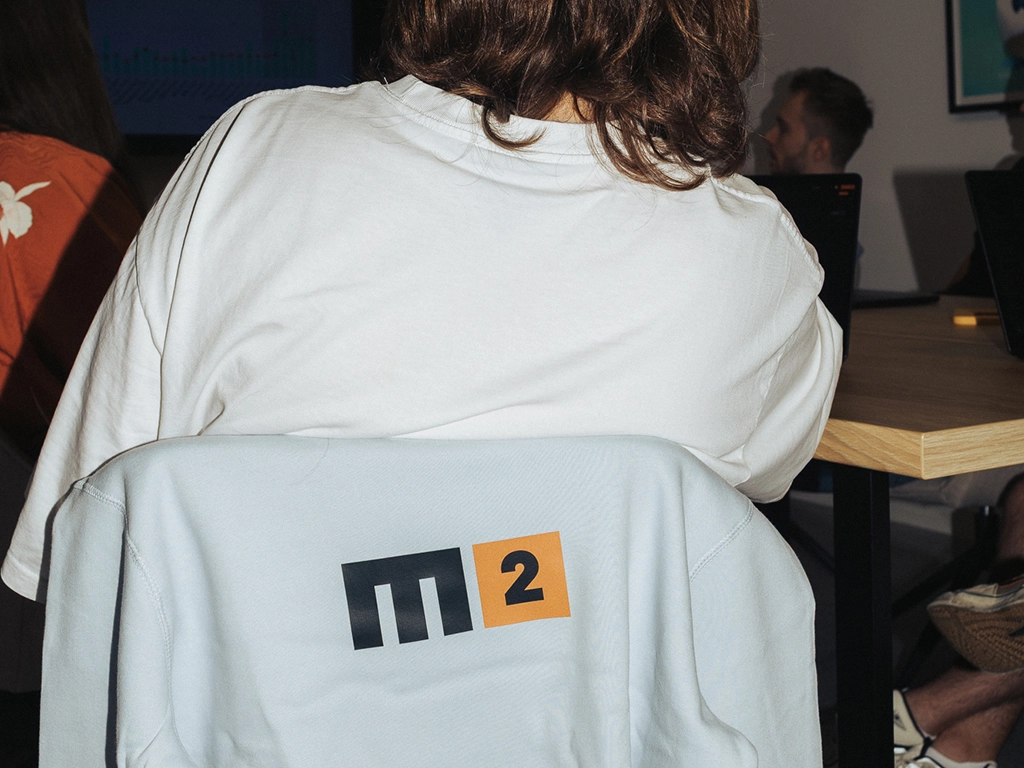How Long Does It Take to Make an App From Scratch?
Table of Contents
Building a mobile app is a multi-faceted process that involves several stages, from initial planning to post-launch support. Understanding these stages and their respective timelines is crucial for anyone looking to develop an app, whether for personal use or business purposes.
In this article, we'll explore the factors that impact app development timelines and walk you through the process from scratch, using examples to illustrate key points. Whether you're working on a simple or complex project, you'll gain insights into what to expect and how to plan your development journey effectively.
How Long Does It Take to Develop an App: In a Nutshell
The timeline for developing a mobile app varies based on its complexity, ranging from a few months to over a year. Here’s a breakdown:
- Simple apps (2-4 months): Basic functionality, no external data connections, and minimal custom coding. Example: A to-do list app.
- Medium complexity apps (4-7 months): Feature-rich, with custom interfaces, external API integration, and cloud sync. Example: A fitness tracker app.
- Complex apps (7-12+ months): Advanced functionalities, real-time data, and high security. Example: A mobile banking app.
These timelines can be influenced by factors like development tools, team expertise, and project management strategies. Every app is unique, so actual development time may vary.
What Affects App Development Time?
Creating an app is a complex process influenced by several key factors. Understanding these elements can help you better estimate how long your project might take.
Overall Impact
Applications with secure funding or strong leadership often progress faster than those still seeking investment. Meanwhile, large companies may face delays due to more complex decision-making processes, whereas agile startups can move more quickly.
”With proper care, a well-built and maintained mobile app can last for years.
App Complexity
The more features an app has, the longer it will take to develop. For example, an e-commerce app with payment gateways, user accounts, and a product database will take longer to build than a simple informational app.
Platforms
The platforms you want to develop an app for (iOS, Android, or Web) will have an impact on the time taken to build and launch the app. Each platform has its own set of requirements that take extra time to integrate and test.
Development and Business Model
Your app's development and business model also play a critical role in determining the timeline. Deciding between in-house development and outsourcing is crucial — outsourcing can expedite early development but might limit control, while in-house development offers more oversight but may face resource constraints. Additionally, setting up a business model (whether freemium, subscription-based, or in-app purchases) adds another layer of planning.
Team Size and Expertise
A larger, more experienced team can generally develop an app faster than a smaller team. However, larger teams may also require more coordination, which can add to the timeline.
Technology Stack
The choice of technology stack can influence the development time. For instance, using pre-built frameworks or platforms like React Native can speed up development, especially if you’re targeting both iOS and Android.
Iterative Development
Some teams use Agile methodologies, where the app is developed in iterative cycles, allowing for continuous feedback and improvement. This can extend the overall timeline but often results in a more polished product.
How Long Does It Take to Build an App? 6 Key Phases
Each stage of app development, from initial planning to post-launch maintenance, plays a critical role in determining how long the project will take. Below, we break down the typical stages involved in app development and provide a general time frame for each. Whether you’re building a simple app or a complex platform, understanding these stages will help you plan effectively and set realistic expectations.
1. Planning and Research (2-4 Weeks)
The journey begins with thorough planning and research. During this stage, you'll define the app’s objectives, target audience, and market fit. Competitor analysis is also conducted to identify what similar apps offer and where your app can stand out. This phase is crucial as it sets the foundation for the project.
2. Design (4-8 Weeks)
The design phase involves creating the app’s blueprint. This includes both UI (User Interface) and UX (User Experience) design. Designers work on wireframes to outline the app's layout and create mockups that bring the visual elements to life. The process is iterative, often requiring several rounds of feedback and revisions.
3. Development (8-20 Weeks)
Development is where your app starts to take shape. Depending on the app's complexity, this phase can be the most time-consuming. Development is typically broken down into front-end (client-side) and back-end (server-side) development:
- Front-end development. Focuses on the user interface and experience, ensuring that the app is visually appealing and user-friendly.
- Back-end development. Involves setting up databases, servers, and APIs that enable the app to function.
- Integration. Connecting the front-end with the back-end, as well as integrating third-party services or APIs.
For simple apps, this phase might take around 8 weeks, but for more complex applications with advanced features or integrations, it could extend to 20 weeks or more.
4. Testing and Quality Assurance (4-6 Weeks)
Testing is critical to ensure that the app works seamlessly across different devices and platforms. Quality assurance teams perform various types of tests, including functional, usability performance, and security testing.
Depending on the number of features and the complexity of the app, this stage can take several weeks. Multiple rounds of testing are usually required to identify and fix any bugs or issues.
5. Deployment (1-2 Weeks)
Once the app has passed the testing phase, it’s ready for deployment. This involves:
- App store submission. Preparing the app for submission to platforms like Google Play and the Apple App Store.
- Review process. Waiting for approval from the app stores, which can take a day to a few weeks.
- Post-approval adjustments. Making any necessary changes based on feedback from the app stores.
Deployment can be delayed if the app is rejected or requires additional modifications, so it's important to factor in some buffer time.
6. Post-Launch Support and Maintenance (Ongoing)
The app's launch is just the beginning. Post-launch support is vital to ensure that the app continues to function properly and meets user expectations. This stage involves:
- Bug fixes. Addressing any issues that arise after the app is live.
- Updates. Adding new features or improvements based on user feedback.
- Compatibility checks. Ensuring the app works with new OS updates and device models.
Post-launch support is an ongoing process, and the time spent on it will depend on the app's complexity and user demands.
”Check out our expert guide on the mobile app development stages to gain a clear and easy-to-understand overview of each phase, from planning to launch. It’s packed with insights to help you navigate the process smoothly.
Mobile App Development Life Cycle: 6 Stages & Process Flow
Mobile App Development Timeline — Examples and Averages
Numerous elements contribute to the app development process's complexity and timeline. To illustrate this better, we at Memory Squared conducted a brainstorm with our development team to estimate the app development timeframe taken from Product Discovery through app deployment. So now you may rightfully ask, how long does it take to make an app?
Food Delivery App
Focusing on a particular market with an ordinary product, such as a pizza-ordering mobile app for a Boston-based brand that employs its drivers, the development timeline could be 4 to 7 months.
On the other hand, if we were to develop an app for a multi-national chain of restaurants across the US and Europe — one with various legal standards and currency types in addition to varying dishes and delivery services — it would require significantly more time due to all of the tech stack.
Micro SaaS App
Micro SaaS is a software-as-a-service app crafted with intent and precision, specifically designed to accommodate the needs of small businesses or individuals. Instead of targeting a wide audience, Micro SaaS focuses on a certain niche, which has specific needs for the app. Based on the average complexity of this kind of app, an MVP strategy for a Micro SaaS development timeline can take about 6 months.
E-commerce App
When it comes to these types of applications, the length of time necessary for deployment is mainly dependent on the e-commerce model being used. If an update or extension of an existing shop is all that's required, then full deployment should take 3-4 months.
However, constructing a brand new store with features like layered service management and custom products — such as a personalized diet app — may take up to twice as long.
Marketing App
You can migrate an existing customer loyalty program to a mobile app in about 2 to 3 months. However, if you're looking to add advanced features like gamification or more complex integrations, you'll need to plan for an 8 to 10-month development timeline to ensure everything is built and tested properly.
Social App
Social apps can vary in complexity. Recent trends, like BeReal or Clubhouse, are quite straightforward without complicated features. Developing the first version of a social mobile app like those can be achieved in merely 6 months. However, to launch it successfully, building a user base is key — without one, all features are futile as they strongly rely on network effects.
Wrapping Up
The time required to build an app can range from 2 to over 12 months, depending on various factors such as complexity, team size, and development methodology. By understanding the different stages involved and planning accordingly, you can set realistic expectations and ensure a successful app launch.
FAQs on How Long Does It Take to Build an App
Is it very difficult to make an app?
Creating an app can be challenging, especially if it requires complex features, integrations, and a polished user experience. However, with the right tools, expertise, and planning, it's entirely achievable. The difficulty largely depends on the app's complexity and your development experience.
How much does it cost to make an app?
The cost of developing an app can vary greatly. Simple apps might cost between $10,000 and $50,000, while more complex apps with advanced features can range from $50,000 to $200,000 or more. Factors like design, platform, and ongoing maintenance also affect the overall cost.
Why does it take so long to build an app?
Building an app is a detailed process that involves planning, design, coding, testing, and deployment. Each stage requires careful attention to ensure the app functions smoothly, meets user expectations, and is secure. Thorough testing and potential revisions also add time to the development process.
How long does it take to build an app like Instagram?
Creating an app like Instagram, with features like photo sharing, real-time updates, and social networking, could take around 9 to 12 months. This timeline includes designing the user interface, developing the backend infrastructure, integrating features, and performing rigorous testing.
How long does it take for an app to be successful?
The time it takes for an app to become successful can vary widely. Success depends on factors like market fit, user acquisition strategies, and marketing efforts. Some apps gain traction within a few months, while others may take a year or more to build a substantial user base and become profitable.
How long does it take to launch an app?
Launching an app typically takes 1 to 2 weeks after development is complete. This time is needed to prepare for submission to app stores, go through the review process, and make any final adjustments based on feedback. Thorough pre-launch testing and planning are essential for a smooth launch.
Memory Squared

Trusted by both innovative startups and large international companies.

Awarded as one of the best 2024 software companies globally
What we do
We can cover the whole process and product development life cycle but we’re also open to sending our developers and designers on a mission to join your team. We’re comfortable working closely with business managers to creatively place digital products into their strategy.








